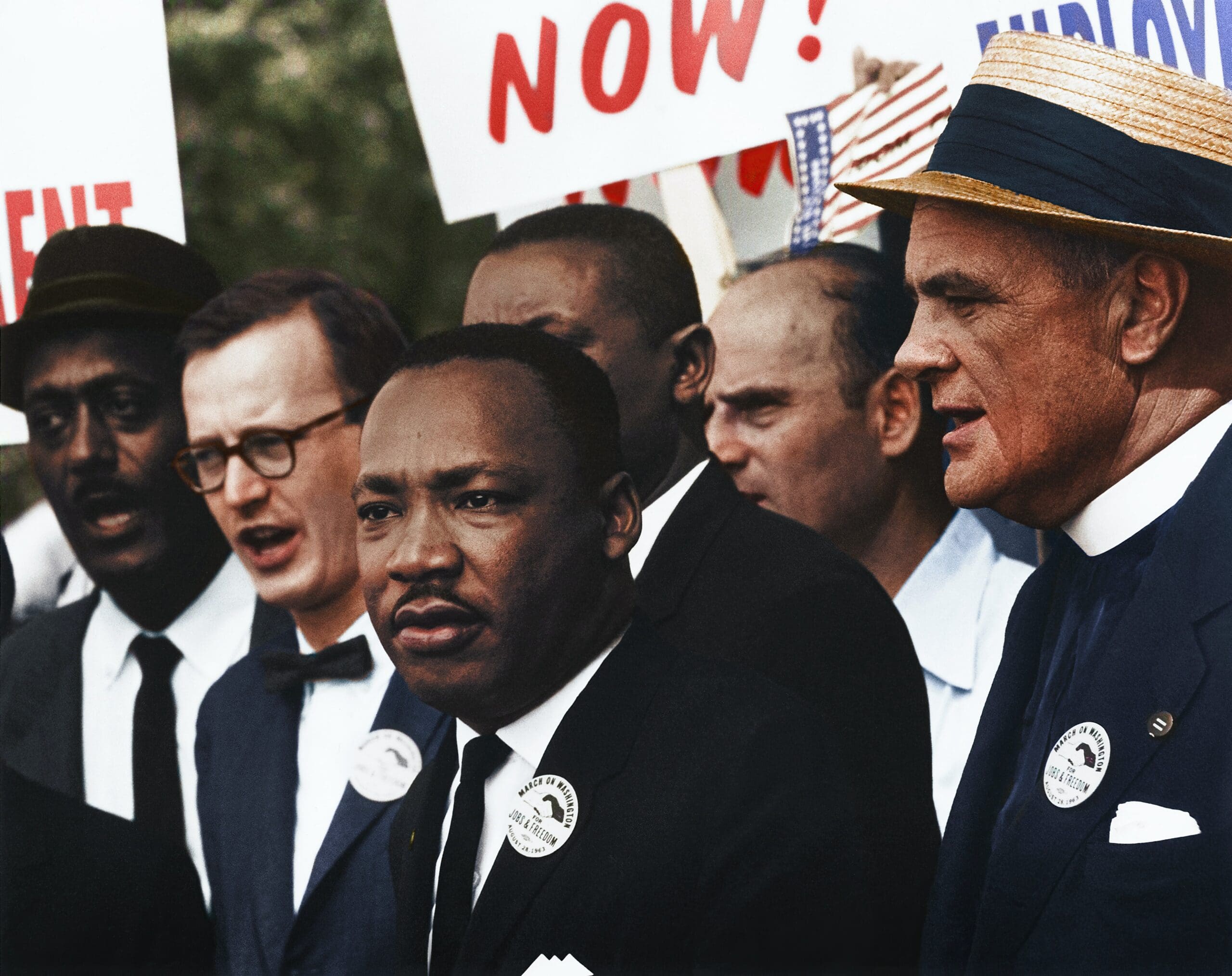Why should the church celebrate Black History? I think some Christians who don’t come from an African American culture would naturally ask: Why should the church celebrate a man-made holiday? After all, as the church, we don’t celebrate July 4th or Thanksgiving, or Memorial Day. While it may be good for the country to celebrate it, why should the church give this holiday a particular consideration? Well, first I want to agree. The church is different. We should not celebrate holidays just because the world does. My hope though is through this article, you will leave more convinced why we, as the church, can really benefit from celebrating Black History Month.
So what is Black History? Well, a man named Carter G. Woodson, a historian and the second Black Ph.D. at Harvard, wanted an annual time to celebrate the achievement of African-Americans within American History. He and his contemporary Jesse E. Moreland, a North Carolina Native and minister, decided to celebrate the history of Black people the second week of February to coincide with Abraham Lincoln and Frederick Douglas’s birthdays. This was known as Black History Week, which has over time transformed into a full month of celebration and remembrance. Black History Month (BHM) is a significant month in the life of the Black community. Before I tell you why I think the church should celebrate Black History Month, allow me a moment to explain the cultural significance of this month in my own and other Black believers’ lives.
As an African-American man, I have always loved celebrating Black History Month. Growing up in the Black church, I remember spending the month of January preparing for a Black History Month Sunday where we would recite the achievements of Black people and remember the legacy of people who fought through so much oppression. Each year, we added to that list of accomplishments because someone was always becoming “the first” in another field. A trend that still rings true today. For me, observing Black history was a way of life, as it was for many African-Americans. However, this month, in particular, highlighted the beauty of Black history that was often ignored or overlooked in history books. Therefore, the Black church, which has a deep understanding of God’s sovereignty and the Imago Dei, wanted to teach their communities, especially their children, about Black history so it could be remembered and celebrated. For most Black people like myself, our dignity often feels brought into question. Mass Media and society have traditionally presented Black people as a threat, and once you’re exposed to that narrative long enough, you start to believe it. This is what sociologists call confirmation bias. This confirmation bias led to a development in the Black American consciousness that we were the problem. So the Black church’s celebration of Black History Month provided a space to remind us of our dignity, worth, and value in Christ.
As I said, I always loved learning about Black history, my history, so I have experienced deep lament in knowing that some feel this month is an unnecessary time of celebration and remembrance. The most unsettling realization has been learning this viewpoint is shared by some of my White brothers and sisters in the faith. I have spent time educating my friends about the beauties of my history and have often experienced resistance in these conversations. I did not understand. To me, learning about and respecting White culture happened all day and all year, but when Black culture was highlighted, it was quickly dismissed. Over the years, I’ve felt these conversations increase in hostility. I’ve heard, “Doesn’t celebrating Black history contradict the gospel message of oneness? Isn’t celebrating Black history ethnocentrism?”
So, in response to those questions, and with a tone of graciousness and patience with my brothers and sisters who feel Black History Month is an unnecessary threat to gospel oneness, I want to offer four reasons I believe the church should celebrate Black history:
Black History Month shows the world that the church has a better solution for unity.
Oftentimes, the world treats Black History Month as propaganda for a diversity agenda. Before the George Floyd murder and the events that surrounded it, Black History Month was often ignored. Now it has become the “it” thing to talk about during the month of February – even Target has a section dedicated to celebrating BHM, and Starbucks sent a celebratory email to its subscribers. Although I am grateful for those efforts, celebrating Black History Month should be more than the virtue signal of an empty secular diversity agenda; it is an opportunity to celebrate our diverse and beautiful God and the unifying work of the cross. Throughout the Scriptures, we see God constantly reminding us that we, as His people, are united in Christ (John 17). We are to be his workmanship (Eph 2:10) so that we can show off his glory to the world (2 Cor 2:15-17). Therefore, when the church considers Black History Month, it should be seen as an opportunity to stand in solidarity as one people united in Christ. Through our unity, we show the world that God’s solution for disunity is the gospel of Christ and that unity is made visible in the church of Jesus Christ.
Black History Month is an opportunity to celebrate the hand of God in history.
There are many beautiful parts of Black history, and simultaneously, there are things that feel uncomfortable, unpleasant, and maybe easier to ignore; but, like all history, we get to see the hand of God at work. As the church, we have a unique way of viewing history through a gospel lens and seeing it as God sees it. Recounting history truthfully and accurately allows us to see the redemption God offers through brokenness and enables us to lament the past. When it is time to look at the broken past of America and its dealings with African-Americans, the world would rather look away. As the church, we can look at history with the eyes of faith. Because of Christ, the church can approach Black history differently, and we can look at the broken past of the United States and hope for the gospel kingdom to come. We celebrate the progress made while still crying out to God for more change. In contrast to the world, the church has a place where we can properly mourn and celebrate — the cross of Christ. This type of response can be apologetic to the world. It shows the world that the hope of the Gospel reigns supreme despite some horrific realities of history. As the church, we do not wash over history and ignore the bad. Instead, we lament it, repent of it, and walk in the unity that was accomplished on the cross.
Black History Month provides the conversation of putting race within its proper place for the church.
God gave us ethnic, cultural, and societal differences, not to compete with one another, but to celebrate His capacity for creation. If it were not for the Black experience in America, we would be missing an essential component about God – particularly a God who is familiar to a people who suffer. Without Black history, we miss out on the beauty of understanding what it means to corporately count it all joy when we meet trials of various kinds (James 1:2). Through Black history, we see the beauty of God working in the lives of those whose stories are filled with adversity, oppression, injustice, and inequality. Only the Christian gospel message has the power to redeem a horrific past and give hope for a better tomorrow. At the core of the Christian message is the cross of Jesus Christ. Only through Christ’s death can we celebrate God’s love for all people and rejoice in the hope of a future perfection amid present brokenness. Looking at Black history, we can more vividly see God’s character towards the oppressed and suffering.
Black History Month shows us that not all moments in history related to culture should have the same importance in the church.
We do not celebrate events and holidays that do not manifest the glory of God and Imago Dei as we look at the scriptures. Our culture’s events try to strive for equality and justice in an unbiblical way. As the church, we do not stand for such things. But as we look at Black History in contrast with other holidays, we get to celebrate what God did among a people that were subjugated in slavery and treated poorly for centuries. Yet the core of Black people’s hope can be the Gospel of Jesus. There are not many things in history that can point to the hope of the Gospel as Black history. Celebrating Black history demonstrates to the world that we are not against culture, but rather, we do want to celebrate things that bring honor to God. Therefore, celebrating this month allows us to be good missionaries in our cultural context and not operate our lives within a vacuum. Our city, Charlotte, NC, is one of the most diverse cities in the country. When we celebrate Black History, it demonstrates an opportunity to engage people who might think that the church does not care about matters of equality and progress among the Black community.
As always, there is more to be said. This article cannot encapsulate the full importance and beauty of celebrating Black History Month. Black history is beautiful because our God who created Black people is beautiful, and this is part of the story He is writing for the fullness of time. As you consider Black History Month, consider how it can stir your affections for God and celebrate all that He has created in his image. To my non-Black brothers and sisters: celebrate this month not simply because it’s the “it” thing this February, and not simply to appear caring of your Black brothers and sisters, but celebrate with us because you are being renewed by the transforming of your mind (Rom 12:2). We are your brothers and sisters in Christ. When you celebrate Black history, you are seeking to understand us. This frees you to celebrate our heritage and mourn the past with us (Romans 12:15). For my Black brothers and sisters: remembering Black history should lead us to worship God, not our ethnicity. God gave us our beautiful rich history to display His glory to the world. As we look at the broken parts of history, use that to lament and pray for the kingdom to manifest on earth as it does in heaven. As we celebrate the glories of where we came from, give praise to God (Psalm 150:6)! Remember, we are God’s “chosen people, a holy nation” (1 Peter 1:9). We should be thoughtful about what we give our attention to and the words we choose to use. The Lord has seen fit to put this local church, Mercy Church, in Charlotte, NC, in 2022, and Lord willing, we will have many more years to come!





